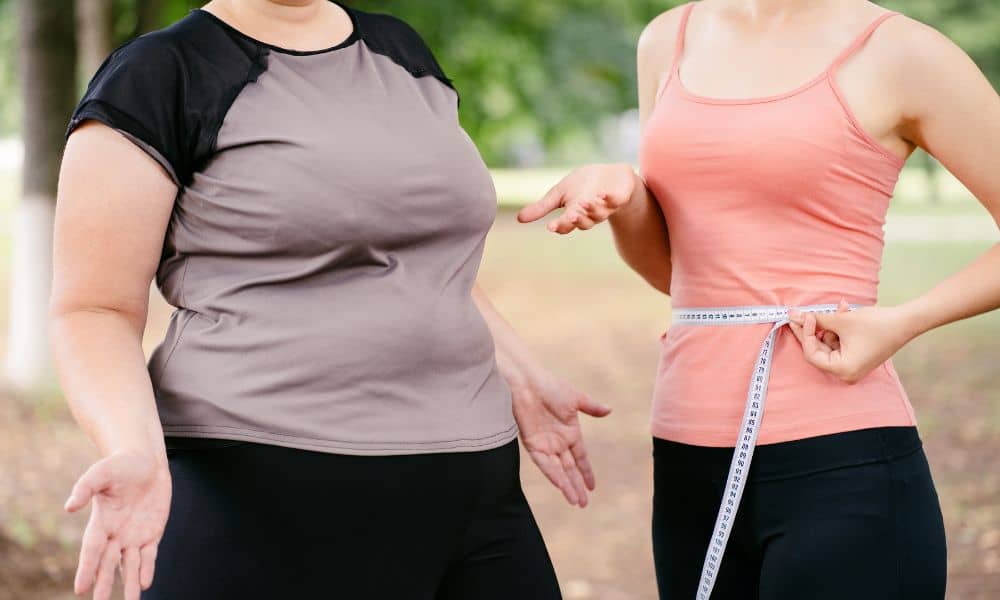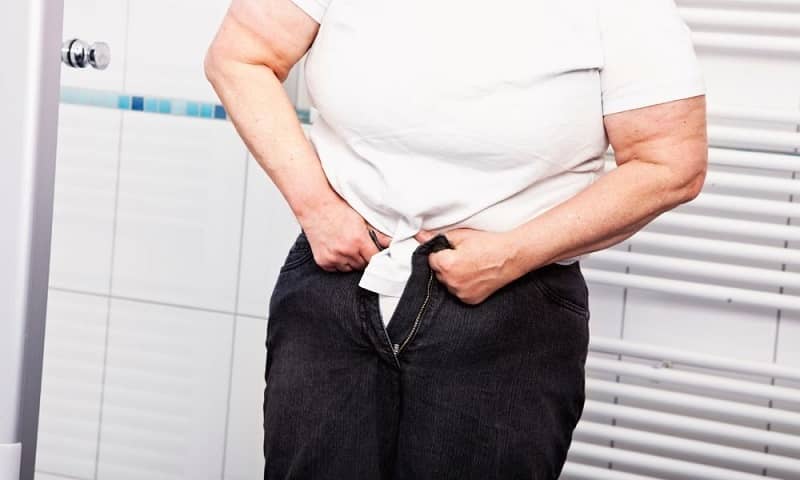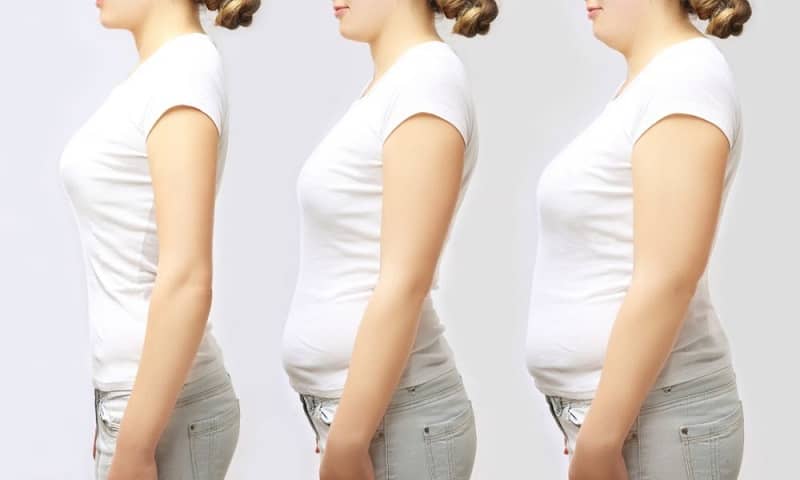


05 Aug Is It Getting Harder for You to Lose Weight with Age? | Here’s Why!
Is your muffin top really an age-related surprise or something else?
Most people are likely to blame their age or even genetics when not able to lose weight after consistent efforts are put in.
Changes in lipid turnover, slower metabolism, or more body fat—almost each of these has been debated in studies.
But why is it harder to lose weight as you age (if that’s even true)!!
Maybe weight gain is, after all, the result of carelessness and here people are blaming their birthdays.
Today, you’ll get all the answers regarding age and weight loss right here. I’ll discuss why it’s getting harder for you lose weight and what you can do to stay in shape as the clock ticks by.
Join in this ride as we start things off by looking at the burning question…
Is It Really Harder to Lose Weight as You Age?


Of course, people are pretty sure age is the real culprit behind weight gain. In fact, every 8 out of 10 people believe this.
But is it harder to lose weight after 30 or say 40?
According to the study by University of Warwick and University Hospitals Coventry and Warwickshire (UHCW), age is not the barrier. Their findings suggest obese individuals over the age of 60 can shed the same amount of weight as those who are younger.
As a matter of fact, they can do this by making simple lifestyle modifications.
Conversely, there are many studies suggesting age does create difficulty in fat loss.
A recent study, published in the Journal of Nature Medicine, found as people age the speed at which their body eliminates fat slows down. It happens because lipid turnover gets slower.
More evidence suggests there’s a decline in fat-free mass between 30 and 80 years of life. Moreover, muscle mass also decreases after the age of 30, and the decline is severe beyond 60. A progressive rise in fat mass along with a loss of muscular mass affects body composition.
Supporting the same date, another study, published in the European Journal of Nutrition, was done on 1,970 Czech women.
The women were aged from 18-89 years. And the study aimed to find the changes in their body composition.
The results showed a significant increase in body fat mass and visceral fat area as age increased. Plus, due to the changes in body fat mass, their weight also increased.
Well, it’s evident from these studies—weight loss becomes harder with age in the general scenario. And the evidence for this is heavy.
However, there are many more factors to account for.
- One of them happens to be your genetic predisposition to gain weight.
It varies from individual to individual, and so does the difficulty rate of weight loss. After all, genetics is not a joke.
- Undesirable biological changes are also inevitable with age.
- The level of physical activity and lifestyle are also influencing factors.
Therefore, most people might find it difficult to lose weight after 40 while others do not.
In both cases, it is essential to understand why losing weight is getting harder for you.
Maybe by preventing all these factors, you can prolong a healthy body and stay fit. Additionally, it might help them in identifying the risk factors of old age issues.
So, without any delay, let’s have a look at the things that affect losing weight as you age.
Why is It Harder to Lose Weight As You Age?



There are a number of factors contributing to weight gain as a person ages.
Whether a person is aging like wine or curdling like milk, some biological changes occur.
Most of them are reasons for extra weight gain and the inability to sport a slim model figure.
- Loss of muscle mass
- High stress levels
- Slow metabolism
- Hormonal changes
- Lifestyle factors
- Culture
Here’s a closer look at why is it harder to lose weight as we age:
#1. Muscle Loss
After the age of 30, people typically lose between three and eight percent of their muscular mass every ten years. (Based on study of Epidemiology of Sarcopenia published in the Journal of the American Geriatrics Society).
Additionally, if a person becomes less active due to age-related illnesses like arthritis, they risk losing muscle.
From middle age on, the pituitary gland produces less growth hormone (GH). The development and maintenance of muscle mass are one of GH’s many roles.
As a result, the body has a challenging time building and maintaining muscle with less GH. Additionally, this has an impact on how many calories you burn.
#2. Stress
With age, stress increases and this is inevitable. There are different kinds of pressure a person feels. It can be career-related or even something bothering in your personal life.
When we are young, there’s freedom. However, with age, most of us get trapped in the web of responsibilities.
Moreover, lack of sleep is regularly associated with gaining weight, according to research. And stress is one of the significant reasons behind sleepless nights.
Lack of sleep may also have an impact on the hormones leptin, which curbs hunger, and ghrelin, which increases appetite.
All these factors work together and do make shedding weight harder at old age.
#3. Slower Metabolism
As we age, the metabolic rate decreases naturally as cells become less effective at handling energy. In most cases, it is the result of a decline in muscle mass.
Basically, having less muscle and more fat decreases calorie burning. For a variety of reasons, a lot of people also become less active as they age. This further reduces the number of calories they burn.
Further, body size and sex also have an impact on the metabolic rate.
In addition, age-related medical disorders including hypothyroidism and Cushing’s syndrome also affect metabolism.
#4. Hormonal Changes
Low levels of estrogen and testosterone encourage the body to store fat. As a result, losing weight gets more difficult as we age.
When estrogen levels fall during menopause, weight gain in women becomes fairly prevalent.
Similarly, as men age, their testosterone levels significantly decline. The distribution of body fat, as well as the size and strength of muscles, are controlled by testosterone.
In other words, a reduced testosterone level may make it harder for the body to burn calories.
#5. Changes in Lifestyle
In addition to biological factors, alterations in lifestyle can contribute to weight gain as people age.
There’s a time in everyone’s life when they start families. This causes them to be less physically active. The time they spend inside a gym is consumed with taking care of toddlers.
Further, as the child grows, homework, art classes, and other activities take the attention.
You might also become more inactive than you were as young adults due to career responsibilities.
#6. Culture
Culture is another factor that makes it harder to lose weight as a person ages.
For instance, there are countries where fat people are not socially accepted even in their 40s. In that case, it puts pressure on the civilians to maintain weight. After all, in the end, humans are but social creatures.
In countries with cultural roots, there’s a certain age fixed for everything from marriage to childbearing.
In this case, it gets harder to find time to look at the aesthetic aspect of your body after your 30s or 40s. This is the major reason why it gets difficult to lose weight.
In both the above scenarios, there’s usually a lack of motivation.
Attitude is also an important factor along with peer pressure. At a young age, people have this peer pressure to look good at parties or look attractive to their date.
Somehow, this gets lost as we age, and it’s common to get careless about external appearance.
At this point, hopefully, it’s clear why it is harder to lose weight as you age.
BUT!!!
How can you prevent weight gain with age, given that all these factors are working against you?
Surprisingly, based on research, there are some possible ways to reduce weight gain with age.
How to Avoid Age-Related Weight Gain?



The average weight gain per year after 40 is not the same as in the 20s. This is enough to understand that there will be some changes.
Therefore, there’s a need to do extra care and make some lifestyle changes for fitness.
The weight gain with age may be inevitable for most. But the power to change it lies in your hands. So, are you ready?
These changes in lifestyle will help anyone prevent weight gain as they age:
- Portion control
- A healthy diet plan
- Weight training
- Enough rest
- Move your body any way you can
Here’s how to go about including all these tips in your daily routine.
#1. Portion Control
How much a person eats matters along with the amount on the pate.
Whatever your age, you must consume fewer calories than you expend in order to lose weight.
- Pay attention to what you’re eating and drinking to save calories without sacrificing nutrition.
- Increase the intake of whole grains, fruits, and vegetables, especially those that are less processed and are higher in fiber.
Also, the calorie consumption that caused weight loss in your 20s will not be effective after age 35. The reason is metabolism typically slows down as a person ages.
Thus, it’s vital to control the portion size of food servings. The best thing to do is to eat small portions after every 3 hours instead of eating full plates thrice.
Also, portion control will keep up the appetite. Luckily, weight loss in the elderly with a good appetite is easier.
#2. Healthy Diet
As a person ages, lean muscle mass declines, and the body fat percentage rises.
This is bad news, especially if you’re not having enough protein in your diet.
This ends up affecting the muscle-to-fat ratio.
The body may struggle to control weight and reduce fat deposits if it doesn't get enough protein.
Plus, protein intake is increasingly crucial as you age. It helps maintain muscles, which lower the chance of falling.
Additionally, without muscle mass, doing weight loss workouts is just a dream.
Therefore:
- Eat foods like eggs, fish, chicken, lentils, and nuts to up the protein intake.
- Do not forget to add dairy and calcium-rich foods to keep bones strong. Stronger bones mean better strength to do weight loss exercises.
Maintaining a nutritious diet will also depend on how you arrange your intake in every meal.
PEOPLE ALSO READ: Can You Lose Weight by Just Eating Healthy?
#3. Weight Training
If resistance training is not a part of your fitness routine, start right away.
Lifting weights is crucial with age because muscular mass decreases with each passing year.
Interestingly, the best technique to improve and maintain muscular function is through resistance training.
- Free weights, weight machines, resistance bands, and the body’s own weight are all tools for this.
- Train three to four times a week for optimum benefits, and make sure workouts are challenging.
- When it stops getting harder, that suggests the resistance must be increased.
Along with this, include normal strength training and stretching in your routine.
#4. Rest Well
Most people are less active during the day and burn fewer calories if they don’t wake up feeling energized.
Significant changes in sleep patterns impact metabolism. Therefore, establish a consistent bedtime and wake-up time.
- Create a nightly ritual to tell the body and mind to slow down if you’ve trouble accomplishing that.
- Put away all electronic gadgets and change into pajamas at least an hour before bedtime.
Also, adequate sleep decreases stress levels and boosts mood. Good mood and positivity are really helpful in preventing extra weight gain.
#5. Move That Body
Try to have 30 minutes a day of aerobic activity, which includes anything that raises the heart rate.
- For starters, go for a walk or jog, and use stairs instead of elevators.
- Further, play sports, such as football, badminton, tennis or something else to make your heart race.
- Yoga can help maintain and improve mobility as a person ages. Additionally, its relaxing effects might be helpful for weight loss.
- Make habits such as walking while talking on the phone.
- Walk to the nearby places instead of driving in a car.
All in all, stay active to promote natural weight loss.
Whether a person is in their 50s or 60s, following these strategies can shed pounds.
No one is saying it’s going to be easy with stress from work and kids. However, maintaining weight is the first step towards a fit body.
Always keep in mind to lose weight successfully at any stage of life, you must make long-term dietary and exercise modifications.
So, commit to a healthier you by making lifestyle adjustments today.
Finally, it’s time to wrap up everything and conclude with some final words.
Message to Take Home
Facts suggest your body changes as you get older. Most people get a blubbery figure as a result, which leads to obesity and other issues.
But if you keep up with a regular exercise routine and eat healthily, the side effects of aging will be far less noticeable.
After all, age is just a number!
While there are factors piling pounds after pounds on the body, there are ways to strip them off too.
Hopefully, this blog was able to clear your doubts about why does it get harder to lose weight as you age. Do let me know what you’ve been doing to stay in shape and if it has worked for you. Your comments are welcome below.



No Comments